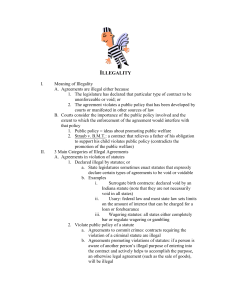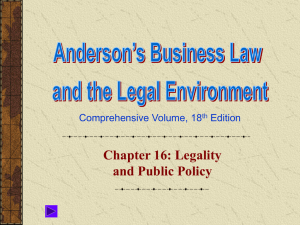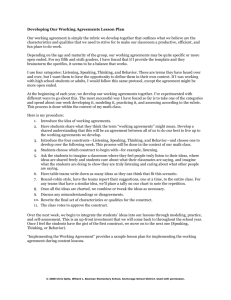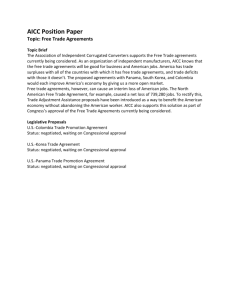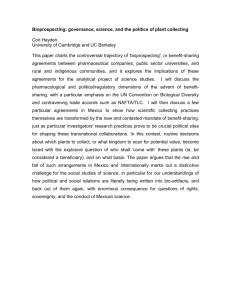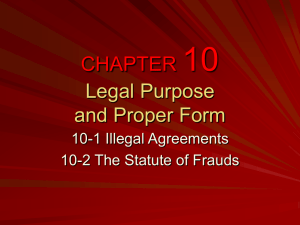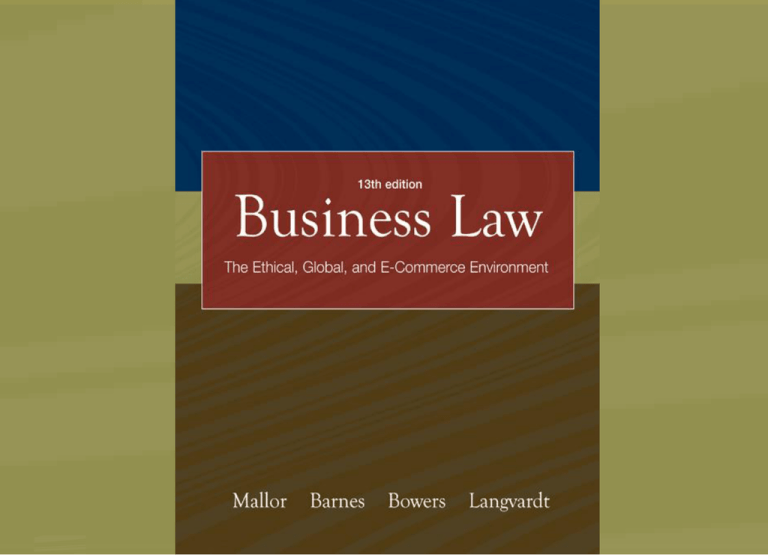
P A R T
3
Contracts
Introduction to Contracts
The Agreement: Offer
The Agreement: Acceptance
Consideration
Reality of Consent
McGraw-Hill/Irwin Business Law, 13/e
© 2007 The McGraw-Hill Companies, Inc. All rights reserved.
P A R T
3
Contracts
Capacity to Contract
Illegality
Writing
Rights of Third Parties
Performance & Remedies
McGraw-Hill/Irwin Business Law, 13/e
© 2007 The McGraw-Hill Companies, Inc. All rights reserved.
C H A P T E R
15
Illegality
“In a free society the
state does not
administer the affairs
of men. It administers
justice among men
who conduct their own
affairs.”
Walter Lippman
Learning Objectives
Meaning
of illegality
Types of illegal agreements
Effect on contracts
Special doctrines
15 - 5
Illegality
An agreement will be unenforceable
because of illegality if the agreement
involves an act or promise that violates a
law or is against public policy
Even if there was voluntary consent between
two parties who have capacity to contract
Effect: no remedy for breach of an illegal
agreement
15 - 6
Types of Illegal Agreements
Agreements that violate a statute
Agreements that violate public policy:
Agreements to commit a crime
Agreements promoting an illegal purpose
Agreement to perform an act for which the
person is not properly licensed
15 - 7
Example: Riggs v. Woman to Woman P.C.
Agreements in restraint of competition
Agreements in Restraint of
Competition
If sole purpose of an agreement is to restrain
competition, it violates public policy
A non-competition clause restrains
competition, but courts enforce the clause if:
15 - 8
It serves a legitimate business purpose,
Restriction is reasonable in time, scope, and
geographic area
It does not impose an undue hardship
Unconscionable Agreements
In general, courts refuse to enforce and
unconscionable contract
A contract with the absence of meaningful
choice and terms unreasonably advantageous
to one of the parties
UCC 2–302 gives courts power to refuse to
enforce or modify unconscionable contracts
for sale of goods
15 - 9
See Circuit City Stores, Inc. v. Mantor
Adhesion &
Exculpatory Clauses
A contract of adhesion, usually a contract on a
standardized form, is offered by a party who
is in a superior bargaining position on a
“take-it-or-leave-it” basis
An exculpatory clause (release, liability
waiver) in a contract attempts to protect one
party from liability for damages
Courts enforce these contracts unless effect is
overly harsh or oppressive
15 - 10
Test Your Knowledge
True=A, False = B
An agreement that promotes violating an
environmental permit is illegal
A person can demand restitution for
breach of an illegal agreement
Non-competition agreements are illegal
agreements
15 - 11
Test Your Knowledge
Multiple Choice
A contract of adhesion:
(a) is always illegal
(b) are contrary to public policy
(c) is a “take it or leave it” agreement
An exculpatory clause:
(a) Protects one party from liability for
damages
(b) Promotes violation of a civil law
(c) Is contrary to public policy and illegal
15 - 12
Thought Question
Do you think enforcing non-competition
clauses in employment agreements is good
public policy?
15 - 13


